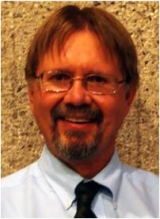He’s finally done it. Barack Obama has taken the tantalizing trail to a notoriously slippery slope. In an op-ed for the Wall Street Journal last week, the President promised, “federal agencies (will) ensure that regulations protect our safety, health and environment while promoting economic growth.” In other words, we will have our cake (the environment) and eat it too (for economic growth), and federal agencies will be there to dish it all up.
Obama was explaining the executive order he issued that day (January 18) and touted in the State of the Union address. The order was clearly designed with political convenience in mind, and who could begrudge him a bit of that? He is, after all, a politician. However, the order – and the rhetoric used to describe it – could tarnish his legacy as a true defender of the environment and the economy.
For much of his first year in the White House, the President steered clear of fallacious win-win rhetoric. His economic and environmental agendas had clear and separate goals. His economic focus was on rescuing the financial system and creating jobs. He seldom used the phrase “economic growth,” and there was even some evidence that he supported a “paradigm shift” away from unsustainable growth toward a truly sustainable steady state economy. Meanwhile, he promised to protect the environment, period, and the BP oil spill gave him a platform (pardon the pun) to put the environment first.
Some would argue that Obama was necessarily promoting economic growth when he bailed out the banks and called for job creation. But they wouldn’t necessarily be right. Bailing out banks and saving the insurance industry was necessary for stabilizing the financial system, which needed to happen with or without economic growth. It was needed especially to protect the modest lives of relatively innocent borrowers and customers (even though wealthier swindlers benefited too).
As for jobs, it is true that GDP growth is seen as a job creator through the lens of conventional economics. Technically, though, more jobs can be created while capital expenditures decline. In other words, employment can increase without growing GDP, and a president can call for more jobs without promoting economic growth. Such “labor intensification” has its limits, naturally enough, but it can solve short-term unemployment problems while more important issues are dealt with.
And what issues are more important than full employment? For starters, how about full employment for your kids, say five years from now, or for your grandkids in a couple of decades? How about the environment – air, water, soil, minerals, timber, fisheries, etc. – the foundation and building blocks of the economy? How about the other species on the planet?
Unfortunately, it’s too easy for critics to hone straight in on “other species” and rant, “Who cares about other species – we’re talking about the economy!” But we better care, because these other species are like canaries in the coalmine of the grandkids’ economy, and we’ve been shooting them down like targets at a county fair. Splat goes the spotted owl, poof goes the polar bear; 1,372 federally listed species on the ropes and, with very rare exceptions, down for the count. And what took the environmental building blocks from these unfortunate flora and fauna?
It’s not a mystery. The causes of endangerment in the U.S. are well-documented. They’re a veritable Who’s Who of the American economy. They reflect a human economy out of control, sweeping across the countryside, wiping out the economy of nature and using up the building blocks faster than new ones can be crafted by Mother Nature or imitated by Monsanto.
Yet for decades we’ve been subjected to the rhetoric that “there is no conflict between growing the economy and protecting the environment.” Though developed by environmentalists hoping to counter opposition to environmental protection, such rhetoric backfires incessantly. It results in policies (such as regulation-loosening executive orders) that allow us to pluck the grandkids’ goose while presuming to protect it.
Fortunately, the days of this rhetoric are numbered. Recent research has demonstrated conclusively the fundamental trade-off between economic growth and environmental protection, as so many prominent scientists have agreed. The trade-off is fundamental because it is based on physics and ecology.
What we need now is a president who will parlay this knowledge into public support for policy reform. The President can clarify once and for all that we can’t have our cake and eat it to. Can you almost hear him? “We need to balance our concerns about environmental protection with our concerns about full employment, and that doesn’t square with growth everlasting. What we need is a healthy, steady state economy balanced with a healthy environment, not an overgrown economy and a shrunken environment.”
How would a president and other policy makers help concoct a steady state economy, even if it was publicly supported? First, policies designed to “grow the economy” would be discontinued. Next, steady state policy tools (such as resource capping) would be employed. There is no shortage of policy options. But the horse must come before the cart. The steady state economy has to be a goal with widespread public support before a suitable policy framework can be constructed. Presidential leadership is needed to generate such support. Then, with widespread public support, a steady state economy would be engendered from the “demand side,” too, with temperance trumping conspicuous consumption. In other words, with widespread public support, less policy reform would be required for establishing a sustainable steady state.
It’s not too late for Obama to be the Truth Teller in Chief. He’s tested the slippery slope of win-win rhetoric – gotten his foot muddied a bit – but he hasn’t committed himself to a mudslide yet. The trade-off between economic growth and environmental protection is perhaps the most inconvenient of all truths to acknowledge, but it’s better than a full slide down the slippery slope of green growth rhetoric. That could be a legacy breaker.






